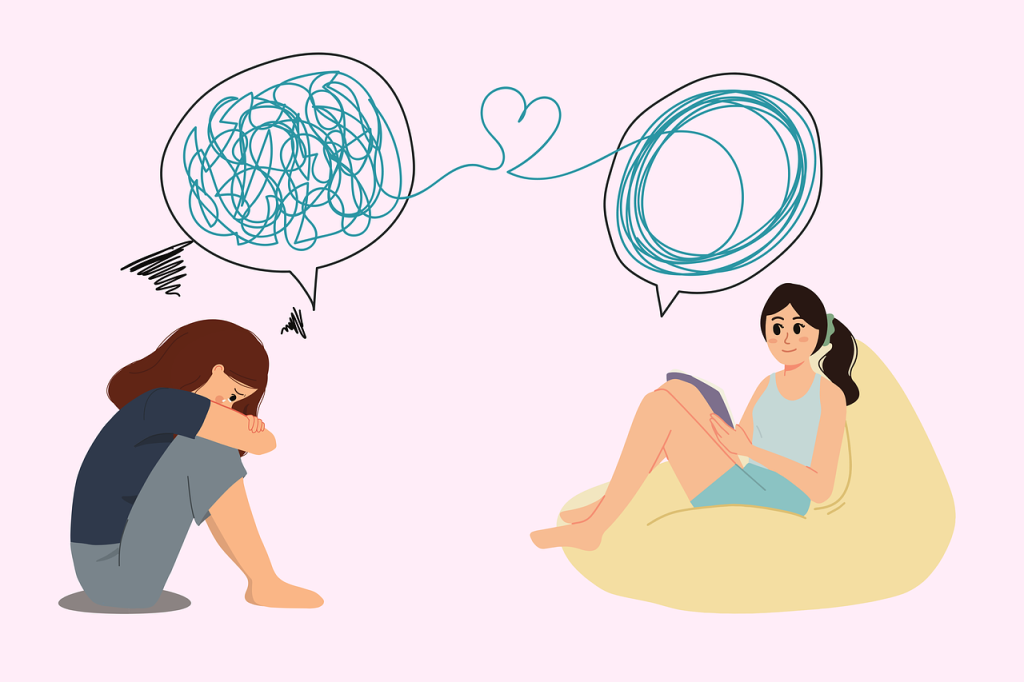
Stigma around mental health is pervasive, even in environments that are meant to provide care and support. As a healthcare professional and a person who has struggled with mental health issues, I’ve seen first-hand how this stigma impacts individuals seeking help. Patients often whisper their symptoms, minimise their struggles, or hesitate, sometimes even avoid asking for the help they need, for fear of being judged. This silence speaks volumes about the societal shame still attached to mental health. As we work towards a more open and supportive environment, it’s crucial to avoid certain harmful behaviours and attitudes when talking about mental health.
- Do not tell them that other people have it worse off and that they should be grateful.
There are very happy people with very little in life that are able to cope a lot better than someone who seems to have everything going their way. Mental health issues are not caused from lack of gratitude, but are rather connected to childhood traumas, biological factors, social factors, physical conditions and family history to name just a few. Telling someone that others have it worse off entices guilt, and makes one feel as if they don’t have the right to feel the way they do, bringing a potential feeling of shame alongside it.
- Do not ask what’s kept a person from harming themselves/taking things further.
Sometimes, there’s nothing holding someone back, it can be all their body and mind wanted to do, however they didn’t have the energy, they didn’t think it’d be worth it, they went to sleep instead, they had the school run in 20 minutes with no back-up plan… The question can increase feelings of unjustification of the emotions. The fact that every time you feel the urges to break down, you don’t, does not mean that the feelings are not valid and as damaging each time. From personal experience, I have also noted that if you give a straight answer such as ‘I thought about my family’ ‘I was scared’ the expectation to be able to use that technique each time is implemented, making it difficult to create a holistic safety plan for when the person in question is in crisis and putting sole responsibility on the patient.
- Do treat mental health as you would other health conditions. If you would not be silenced, if you would not accept the discussions held for a cancer patient or a patient with abdominal pain, don’t do it with mental health. It is not chosen or self-inflicted, it is an illness.
- Healthcare professionals are around for those with mental health difficulties for short-term intervention, which in itself is very very difficult to access in the UK. Nothing can replace a friend. Do ensure you are there for your loved ones.

- Do communicate. Although it may be difficult at the initial stage, attempt to communicate with those who require the support, ask them how you can help, don’t assume anything.
- Don’t offer unsolicited advice or quick fixes.
Phrases like “Just go for a run” or “Have you tried yoga?” can make it seem like the person’s suffering is easy to solve. While physical activity, wellness and distraction techniques can be beneficial, mental health issues are rarely resolved through simple, one-size-fits-all solutions. Instead, listening and offering support can be much more valuable.
As a patient, I have felt that the most difficult part of my journey has been justifying myself to those who I should have been able to rely on, may this be by educating family, or ‘proving’ my mental illness to healthcare professionals. This has been exhausting and has been anxiety inducing every time I have needed/wanted to reach out, despite being such a confident person in general, so I can only imagine the impact it has on others.
We all have a responsibility, we all have our own part to take place in.
Whether you are a family member, a colleague, a friend, a healthcare professional, ensure you approach the patient with a non-judgemental, open, communicative, empathetic nature.
As the WHO have found, two thirds of mental health patients will never seek mental health support due to the stigma as well as lack of availability of the services; so the responsibility is on us to lower than ratio and of course ensure that when that mental health assistance is sought, that it is a healing and comforting process, rather than a traumatising and uncomfortable one.
